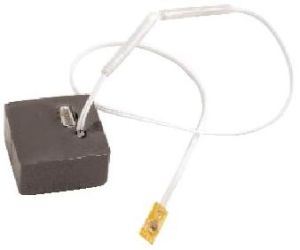Historical

The MicroRecorder is a data acquisition unit that measures and stores data that can be later downloaded to a PC. Over one month of data (at one sample per minute) can be recorded on internal non-volatile memory. Each unit has one external input channel from a resistive sensor and an internal temperature channel. The external resistive device can be one of many different sensor types: temperature, strain gauge, humidity sensor, pressure sensor, etc. Each unit has a programmable initiation time and programmable sample rate.
Post-acquisition download is through a special interface cable to a standard RS-232 port on a PC. A Graphical User Interface (GUI) provides programming, graphical data representation, and downloading functionality.
The MicroRecorder with an external Resistive Thermal Device (RTD) sensor flew on Shuttle mission STS-96 in 1999 to measure the actual temperature extremes experienced by specific Shuttle electronics.
- Sample Rate: Programmable from 1 sample per hour to 1 sample per second
- 1 external sensor per unit
- The units can support any resistive sensor type
- Approximate Size: 3.3cm x 3.3cm x 1.5cm replaceable battery unit
View the full MicroRecorder Technology Profile (MicroRecorder.pdf)
